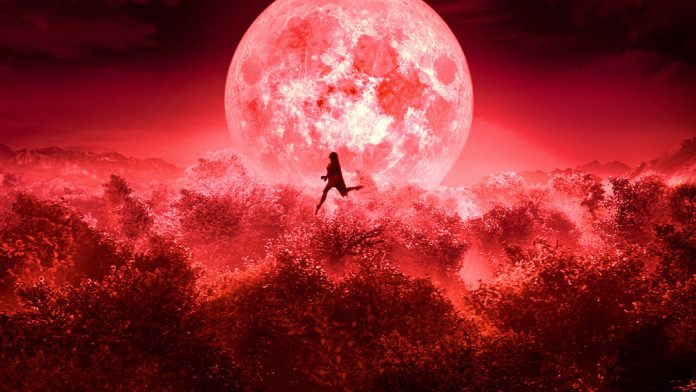Looking for a spooky tale that will keep you up at night? Anvita Dutt’s Bulbbul is a haunting story set in old Bengal, weaving together folklore, horror and a powerful narrative about a woman trapped in a world of pain and secrets.
Bulbbul isn’t just a ghost story—it’s a tale of transformation, of a woman finding her voice and inner strength when the world expects her to remain silent. Like a butterfly breaking free from its cocoon, the protagonist evolves into something unexpected and powerful, keeping you hooked at every turn.
The tale unfolds with young Bulbbul, a child bride, being married away to the grand estate of a wealthy zamindar (landlord) family. At first, she believes her companion, the playful and kind-hearted Satya (the younger brother), to be her husband. But destiny has woven a different fate—her true groom is not the boy she laughs with, but his elder brother, Indranil, the stern Thakur (the head of the house).
The family dynamics grow even more complex with the presence of Indranil’s twin brother Mahendra, who has special needs and Mahendra’s wife, Binodini (choti bahu), who harbours deep-seated resentment. Binodini, overshadowed by Bulbbul’s presence, watches as tensions simmer within the household.
As time passes, the relationships between the characters shift dramatically. Satya and Bulbbul share a deep, innocent bond that raises eyebrows—especially for Thakur. Sensing an opportunity, Binodini sows seeds of doubt in Thakur’s mind, leading to devastating consequences. When Thakur decides to send Satya abroad for studies, it marks the beginning of a darker chapter filled with horror, abuse and power struggles.
The twist remains unmentioned—no spoilers here. However, anyone paying attention will likely connect the dots. Dutt’s plot unfolds with an undeniable intensity, predictable in all the most gut-wrenching ways, yet impossible to look away from. The film delivers an unforgettable cinematic experience, with breathtaking visuals, an immersive atmosphere and masterful storytelling. Even with its foreseeable turns, every haunting, beautiful frame demands to be absorbed.
For those unable to handle scenes of violence and abuse, skipping this one would be wise. Bulbbul does not hold back, delivering moments that hit hard—perhaps harder than necessary. Certain scenes may be triggering and deeply unsettling, making it a film best avoided by those sensitive to such content.
Years later, Satya returns to the haveli (mansion) only to be met with disturbing news—mysterious deaths have plagued the village, with whispers of a witch prowling the forests. The haveli he once knew has changed. Mahendra is dead, Thakur has vanished without a trace and Bulbbul is no longer the carefree girl he once knew. Now ruling as the enigmatic Thakurain, her transformation is both fascinating and unsettling, leaving Satya to unravel the mysteries of the past.
While the film’s central themes are clear, some characters remains underdeveloped like Mahendra and Binodini. However, Bulbbul remains a visually stunning and thought-provoking film.
Siddharth Diwan’s cinematography transforms Bulbbul into a visual feast. The camera sweeps through dense forests and foggy landscapes, each scene perfectly mirroring Bulbbul’s emotional journey.
The film’s signature red hues, while occasionally intense, serve as a powerful reminder of both Bulbbul’s suffering and her quest for justice. Like a painter with his canvas, Diwan crafts each frame with purpose – the colours dance, shadows whisper, and compositions tell their own stories.
The result is a mesmerizing visual experience that burns itself into your memory.
The performances elevate the film to another level. Tripti Dimri completely owns the role of Bulbbul, embodying her character’s evolution with remarkable nuance. Whether through her silences, expressive eyes or enigmatic smile, she conveys volumes without uttering a word. She adapts to the demands of each scene, making Bulbbul’s journey all the more compelling.
Paoli Dam brings remarkable depth to Binodini—you hate her, then pity her. Rahul Bose plays both of his characters with such ease and distinction that, despite having the same face and costume, you can tell them apart. Parambrata Chatterjee as Dr. Sudeep steals the show.
One concern stands out though: the film’s artistic treatment of violence against women. While visually striking, these scenes sometimes prioritize aesthetics over impact, potentially diminishing their emotional weight. There’s also an intense and lengthy scene where a shorter cut might have been more effective. Despite the film’s aim to challenge traditional storytelling, these moments needed a more thoughtful approach.
But don’t let that stop you from watching Bulbbul. If you’re drawn to powerful social commentary wrapped in stunning visuals and memorable acting, this film delivers on all fronts.
At its heart, it’s more than just another horror story – it’s a gripping tale about a woman who rises from the ashes of her past, transforming into something both beautiful and fearsome.




